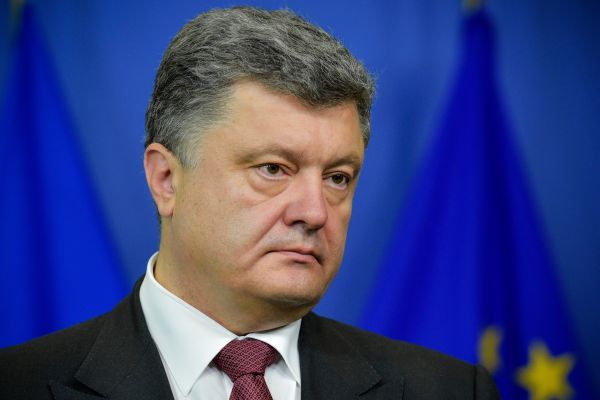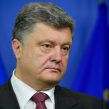
Crimea’s Annexation by Russia Returns to Kyiv’s International Agenda
Publication: Eurasia Daily Monitor Volume: 13 Issue: 20
By:

Up to now, the shaky ceasefire in Ukraine’s eastern Donbas region has mostly continued to hold (see EDM, January 21). And thus, the Crimean peninsula, which was illegally annexed by Russia in early 2014, has returned near the top of Kyiv’s international agenda. Following the severance of Ukraine’s economic ties with occupied Crimea late last year, Ukrainian President Petro Poroshenko has proceeded to drum up international support for the peninsula’s eventual return. So far, there has been little reaction from Moscow, which is currently bogged down in Syria in addition to being preoccupied with falling global oil prices. Therefore, this may be a good moment for Kyiv to mount diplomatic pressure over Crimea on both Moscow and the West to prevent the lifting of sanctions against Russia.
The issue of Crimea’s annexation was quickly overshadowed by the subsequent war in Donbas, the massive dislocation of civilians living in Donetsk and Luhansk provinces, the July 2014 downing of Malaysian Flight 17 over the war zone, Ukraine’s military defeats in Donbas in August 2014 and January 2015, as well as constant fears of a possible Russian escalation and offensive against Kyiv-held areas further west. Crimea all but disappeared from international headlines by around the middle of 2015. In the meantime, mainland Ukraine continued to trade with the peninsula in line with the law on the Crimean free economic area, which was signed by President Poroshenko in September 2014, and to supply electricity there according to contracts signed with Russia in December 2014.
This changed after Ukrainian troops and Moscow-backed rebels in Donbas began to observe a ceasefire last September. Kyiv started to fear that because of this reduction in day-to-day violence, the West would relinquish pressure on Moscow and eventually lift its sanctions on Russia. But then, in November and December of last year, electric power line pylons were repeatedly blown up in southern Ukraine, apparently by individuals connected to Ukrainian far-right groups, causing a black-out in Crimea. The Ukrainian government then stopped supplying further electricity to Crimea and imposed an economic blockade (see EDM, January 6). This brought Crimea back into the headlines and raised the levels of frustration among ordinary Crimeans. Objective measurements of public opinion are impossible in Crimea nowadays, as a dubious New Year’s Eve opinion poll conducted there by Kremlin pollsters has demonstrated (Rbc.ru, January 1; News.allcrimea.net, January 3). Nonetheless, anecdotal evidence strongly suggests that the vast majority of the peninsula’s inhabitants have no interest in Crimea being restored to Ukraine.
Most recently, however, Kyiv has begun to mount a diplomatic offensive on the Crimea issue. Meeting with foreign ambassadors on January 12, President Poroshenko called for the launch of an international mechanism to “de-occupy” Crimea. He warned against postponing the solution of the Crimean issue, adding that international pressure should not let up until Russia learns to respect the sovereignty of its neighbors (Liga.net, January 12). At his first press conference of 2016, Poroshenko said that the restoration of Ukrainian sovereignty over the whole of the Donbas region as well as efforts to return Crimea to Ukraine would be among his priorities this year. Poroshenko admitted that the task would be difficult, and added that he would primarily employ the diplomatic and legal means at his disposal (112.ua, January 14).
Furthermore, Poroshenko’s team used their visit to the World Economic Forum in Davos as an opportunity to remind world leaders about the Crimean problem. Ukrainian Finance Minister Natalie Jaresko said, on the side lines of the forum, that this year would see Ukraine pressing forward on a process to return Crimea. And coming back from Davos, Poroshenko said that a fresh diplomatic initiative was being planned to reclaim Crimea along the lines of the Geneva format, which should include the European Union and the US. He said consultations on these talks should start immediately (UNIAN, January 24). Poroshenko also set up an agency for the de-occupation and re-integration of Crimea, increasing the remit of his official Crimean representative office (Pravda.com.ua, January 21).
Kyiv is also apparently trying to benefit from current tensions between Russia and Turkey. The latter country has special interests in Crimea because it is home to a large Crimean Tatar minority, right across the Black Sea from this Turkic-speaking nationality’s Russian-occupied homeland. As Poroshenko went to Davos, he dispatched his security aide Oleksandr Turchynov to Turkey. There, Turchynov said Ukraine and Turkey could join diplomatic, economic and military efforts in order to respond to what he termed “the upsetting of the power equilibrium” in the region. Crimea’s demilitarization and de-occupation could be an important step in this direction, he said (Rnbo.gov.ua, January 21).
Kyiv has also moved to remind multinational corporations about Crimea’s status. Ukrainian prosecutors have launched an investigation into the publications by Coca-Cola and Pepsico of online maps showing Crimea as part of the Russian Federation last year. Ukrainian people’s deputy Heorhy Lohvynsky, who broke the news on Facebook, said officials of the two companies could wind up behind bars (Liga.net, January 21). Local reports suggest that certain multinational automakers might also end up in legal trouble in Ukraine for the same reason (Ukranews.com, January 6).
Russia has thus far shown little reaction to Kyiv’s activity in the Crimean direction. Putin’s spokesman Dmitry Peskov, asked to comment on the initiative to start talks in the Geneva format, flatly dismissed the idea. The problem of Crimea does not exist, so there is nothing to discuss, according to Peskov (RIA Novosti, January 21). In Moscow’s official discourse, there are no doubts about Crimea being part of Russia; and a military solution is out of the question. The return of Crimea will, thus, be an uphill struggle for Kyiv.




